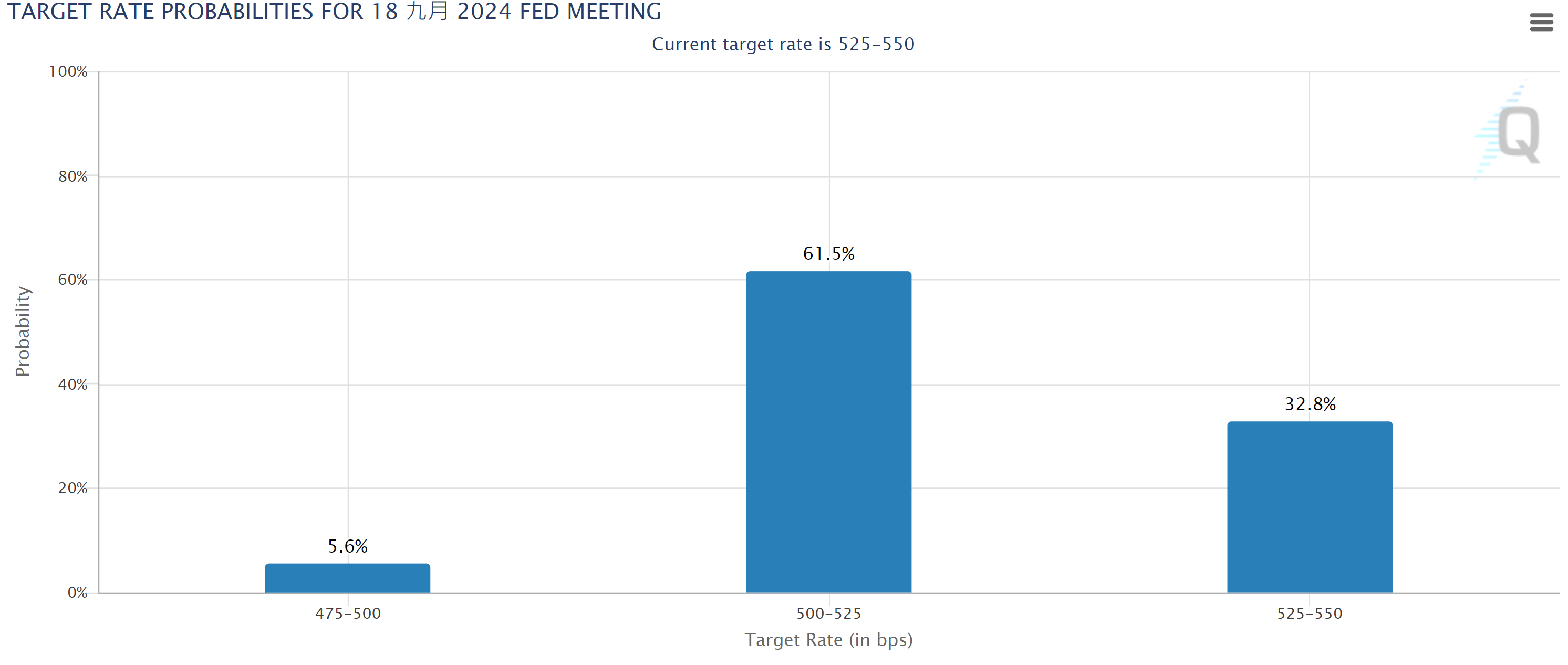According to CNBC , U.S. Federal Reserve Chairman Jerome Powell attended a central bank forum held in Sintra, Portugal, on the 2nd last night. He made dovish remarks at the forum, expressing his disapproval of the past. Satisfied with progress in lowering annual inflation:
We have made considerable progress in getting inflation back to target, and the latest and previous inflation data suggest that we are back on the path to lower inflation, but before we start slowing or easing policy, we Hopefully, we will be more confident that inflation will continue to fall to 2%.
More confidence is still needed before interest rate cuts
The key inflation indicators that the Federal Reserve focuses on, such as the core personal consumption expenditures (PCE) price index released last Friday, increased by 0.1% monthly, the smallest increase in six months. Earlier economic data also showed that There are signs that inflation is cooling, but the Fed still expects it to take until 2026 to fall back to its 2% target.
Ball also said that while he saw progress on inflation, he was wary of taking action too early and worried that the downward path of price increases was threatened (price increases two years ago were at a pace not seen since the early 1980s). highest level since):
We are clear that if we go too fast, we could undo the good work we have done, and if we go too late, we could unnecessarily undermine the economic recovery and expansion.
In Ball's view, as inflation slows and the economy and job market remain strong, the risks of acting too late or too early have been better balanced this year. In comparison, the Fed spent most of last year There are concerns that cutting interest rates too early and allowing inflation to return to an upward trend will pose greater risks, but it seems to be relatively comfortable at the moment.
However, when asked if he thought the Fed might cut interest rates in September, Ball did not give a specific answer:
I'm not going to set any specific dates here today.
Could interest rates be cut in September?
At the beginning of this year, the market initially expected the Fed to cut interest rates at least six times this year, by 1 cent each time. However, as inflation recovered, market expectations were adjusted to only two rate cuts, one in September. Once before the end of the year. At the latest FOMC meeting in June, the latest interest rate dot plot once again showed that Fed officials only expected one rate cut this year, which can be said to make the market increasingly discouraged...
However, although the Federal Reserve's federal funds rate has been maintained between 5.25% and 5.50% since July 2023, U.S. stocks have still performed outstandingly due to the strong economy and the fermentation of the AI topic. The four major indexes all closed higher today (3rd).
- The U.S. Dow Jones rose 162.33 points, or 0.41%, to close at 39,331.85 points.
- The S&P 500 rose 33.92 points, or 0.62%, to close at 5,509.01 points. (The historical high has been rewritten for the 32nd time this year)
- Nasdaq rose 149.46 points, or 0.84%, to close at 18,028.76 points. (Rewriting historical highs for the 22nd time this year)
- Philadelphia Semiconductor rose 67.85 points or 1.24% to close at 5,544.99 points.
Market forecasts chances of interest rate cut in September
According to the CME Group's Fed Watch tool, the market currently favors a 61.5% chance that the Federal Reserve will cut interest rates by 1% to a range of 5% to 5.25% in September, and believes that the chance of keeping interest rates unchanged in September has dropped to 32.8%. . This is the highest chance of a rate cut in September in recent months.

Ball suggests U.S. deficit should be dealt with as soon as possible
On the other hand, when talking about the U.S. debt problem, Ball rarely said that although the U.S. economy is strong, it cannot justify the current high deficit, and urged the White House to deal with fiscal imbalances "sooner rather than later," becoming the Fed's growing Increasingly concerned about the latest signs of increased U.S. government spending.
Since the interest pressure on U.S. government borrowings is closely related to interest rates, although the U.S. government and the Federal Reserve are apparently independent, they do not rule out the possibility of affecting the timing of the Fed's accelerated interest rate cuts.







